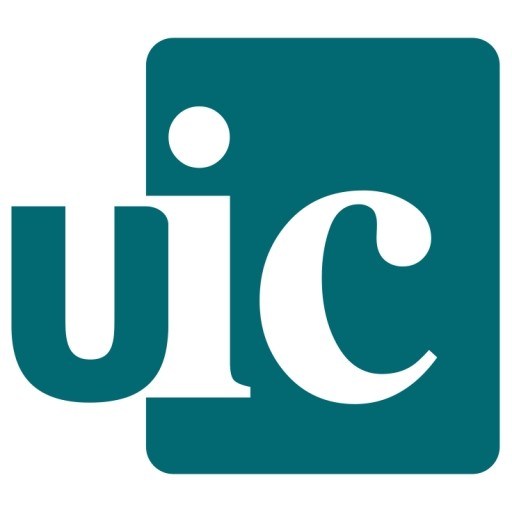Photos of university
The Bachelor's Degree in Sociology and Demography at Pompeu Fabra University offers students a comprehensive understanding of societal structures, social processes, and demographic changes that shape our world. This interdisciplinary program combines theoretical foundations with practical applications, preparing graduates to analyze social phenomena, interpret demographic data, and contribute to social policy development. Throughout the course, students explore key topics such as social stratification, inequality, cultural diversity, urbanization, and population dynamics. The curriculum is designed to foster critical thinking, research skills, and an understanding of statistical methodologies essential for analyzing social and demographic information. Located in a vibrant academic environment in Barcelona, the program benefits from strong collaborations with public and private institutions, enabling students to engage in internships, research projects, and fieldwork. The program emphasizes a global perspective, encouraging students to compare social and demographic trends across different regions and cultural contexts. Graduates of this program are well-equipped to work in areas such as social research, public policy, non-governmental organizations, international agencies, and community development projects. The faculty comprises leading experts in sociology and demography, providing high-quality instruction grounded in current research. The program also offers opportunities for specialization in areas like urban sociology, demographic analysis, social inequality, and migration studies. With a multidisciplinary approach, students gain the skills necessary to address complex social issues, contribute to evidence-based policy-making, and help build more inclusive and equitable societies. The Bachelor's Degree in Sociology and Demography at Pompeu Fabra University is ideal for students passionate about understanding societal challenges and dedicated to making a positive impact on communities worldwide.
Module 1: Socio-demographic Analysis (compulsory courses)
- Demographic changes and social dynamics. The course introduces the key topics surrounding demographic change and social dynamics, both from a macro-level and from a micro-level perspective. A particular emphasis is put on the issues of changing life courses. The students will acquire the capacity to understand the scope and patterns of recent fertility and nuptiality changes in developed countries and the main theoretical contributions made by demographers, sociologists and economists to explain demographic changes. A special attention will be devoted to introducing the tools that are used to study demographic behaviour in the current scientific literature. Contemporary research papers are used to enlighten each of the topics of the course.
- Social Policy and the Welfare State. This course explores key questions and issues in social policy and welfare state development. It examines comparatively the history, growth, maturation, retrenchment and reform of a range of social policy areas in advanced industrial democracies, as well as their consequences. The comparative analysis of social policies, programmes and institutions helps us understand why, how and to what effect nations deal with important social problems and issues. The aims of this course are: to inform of why, how and to what effect different nations structure the provision of social services and transfers to their citizens; to stimulate critical reflection on whether and to what extent existing and emerging social policies are capable of solving current social problems; and to raise awareness of the dilemma's and social and political risks involved in major welfare state reforms.
- Family and Society. Families provide welfare in our society by transferring material resources (i.e. human and social capital) and emotional support to the new generations, but they may also contribute to reproduce social inequalities. The course follows a comparative, theoretical and applied perspective. Its first aim is to review recent theories and empirical studies on the role of families for providing welfare and reproducing social inequalities. This role is strongly related to the institutional context and, therefore, family or social policies closely related to family issues will be discussed in a cross-national perspective. Second, the course aims to help students link theories with empirical analysis. Students must propose theoretical models to predict socio-demographic events and think of an empirical application of their models to real data.
- Analysis of Social Inequalities. The course provides state of the art knowledge of research in social stratification. The course reviews the role of the acquisition of capabilities and skills for the production of inequalities and the distribution of life chances. It places a strong emphasis on mechanisms of inter-generational social inheritance and social mobility to analyze the structure of opportunities of modern societies. And it analyzes the consequences that stratification and inequality structures have on the distribution of wealth, status, and power.
Module 2: Research and Analytical Techniques (compulsory module)
- Techniques of Statistical Analysis I. The course is aimed to provide basic statistical knowledge for using and analyzing quantitative data in empirical social science research. Techniques of data analysis, basic inference and simple linear regression will be the main topics of the course. The course is problem-based, that is, a theoretical presentation of the statistical techniques is always presented in the context of a practical problem needing solution. Students will also learn how to use Stata, the statistical software most used by social scientist.
- Techniques of Statistical Analysis II. The course is the continuation of Techniques of Statistical Analysis I. Its goal is to deepen and enlarge the linear and non-linear modeling techniques learned previously with multiple explanatory variables. The stress is on model diagnosis and in strategies to cope with situations in which there is a violation of the model assumptions. The course also covers logit and probit models, introducing students to categorical data analyses.
Module 3: Socio-demographic Analysis (optional courses)
- Migration and Society. During the past few decades, the world witnessed a significant increase in the exchange of goods, services and information; these developments have only partially been accompanied by parallel trends in international migration. However, migration and the growth of ethnic minorities are becoming more and more an element of concern in both the receiving and the sending countries. The course provides an introduction to the analysis of migration, with an emphasis in methodological and theoretical aspects. The course analyzes trends in international migration and discusses the main theories that explain them. It pays attention to migration policies and the models of integration of migrants into host societies.
- Health and Inequality. This module focuses on the relationship between health-understood broadly as quality of life-and socio-economic inequalities. The module explores which structural factors (labor market status, occupational functions, economic and social resources, social class position, gender status, etc) impact on individuals' health in different ambits of their lives and stages of their life courses. The module pays special attention to situations in which health and inequality affect each other recursively, fuelling precarious life conditions and increasing vulnerability.
- Labour Market Policies and Economics. The transition from Fordism to Post-Fordism (and from Industrial to Post-Industrial societies) has generally entailed a dilemma between unemployment and inequality. For many societies, such a dilemma has turned unemployment into a central challenge for governments. After historically revising the evolution of labour markets in Europe and the national institutions shaping entry into the labour market, the course explores the determinants and levels of unemployment in a comparative perspective. It analyzes different policies carried out to fight unemployment and the results of these policies. The situation of women and ethnic minorities is given a special attention.
- Social Psychological Approaches to Society and the Individual. This course will provide an overview of the discipline of social psychology and its main theories and paradigms, while also highlighting social psychology's contributions to the understanding of key social, sociological, political, economic, and cultural issues. The course will be structured around the following five themes: Introduction to social psychology: What social psychology is, and its history and methodological emphases; Links to political psychology, sociology, and economics; Social-psychological basis of ideology: Socio-cognitive dimensions of ideology; Personality and political behavior; Social cognition and inter-group dynamics: Attitudes and their cognitive/affective/behavioral components; Political identity and social identity; Intra and inter-group dynamics and biases; Social influence: Cognitive dissonance; Conformity; Obedience; Persuasion;Immigration, globalization, and cultural diversity: Acculturation processes; Interculturalism and multiculturalism at the state, community, group and individual levels; Psychosocial effects of cultural diversity and globalization.
Module 4: Research and Analytical Techniques (optional courses)
- Fundamentals of Political and Social Research. This course is an introduction to theoretical issues and practical problems and options encountered in empirical social and political research. Comparative methods, case studies, and interviewing with both a survey and qualitative format will be studied. The course aims to develop the capacity to link practical research choices with broad theoretical issues. It focuses on techniques to delimit the object of study, collect data and develop causal hypotheses.
- Research and data analysis seminar. This course teaches students how to conduct good quantitative research. Half of the course is practical. It teaches students how to access and manage key data-sets used in sociological and demographic research: how to open and read different types of data files and prepare them for analyses using the available documentation; do basic data management operations (merging, adding, transposing, etc.); determine if the data need weighting and how to do it; select sub-samples of cases randomly or by other means; and transform the original data into derived variables and indicators. The other half of the course aims to provide students with examples of good research practice, using published work. Students learn how authors justify their research question; frame it within an existing theoretical framework; formulate appropriate aims and objectives, operationalize them into testable hypotheses; choose adequate research designs, data and techniques of analyses; and present results concisely and effectively.
- Design, evaluation and analysis of questionnaires for survey research. The course offers an overview of the choices which are made when questions are formulated, and of the consequences of these choices. It discusses how researchers can cope with the errors that remain in the questionnaires in the analysis of survey data. The purpose of the course is to raise awareness among students of the major problems which are connected with survey research, to provide tools to develop proper questionnaires, to help evaluate the quality of questionnaires elaborated by other people, to facilitates the assessment of the effect of measurement error on survey results, and to raise awareness of the problems encountered in comparative cross cultural research.
- Qualitative Research Methods. The course deals with how to make valid causal inferences with qualitative techniques. It provides an overview of the existing, most popular qualitative techniques. The course aims to develop students' capacity to define and make inferences about causal effects, make pertinent comparisons, choose relevant observations, and avoid bias in the interpretation of complex chains of events and personal histories.
Requirements
- Official undergraduate degree/diploma and the academic transcript of the accredited official training with the average grade at the university of origin.
- Curriculum Vitae in English.
- A letter of motivation in English, stating the candidate's interest in following the master's programme (400 to 600 words).
- Two letters of recommendation (academic or professional). In order to optimise the treatment and security of the recommendation letters, the candidate will have to request those via the online application system, where he/she will need to indicate the e-mail adress of the person/the persons he/she wishes to be recommended by. That person will receive an e-mail indicating that the candidate wishes a recommenation letter from him/her. The letter will be uploaded by the referee in the online application system. Non-institutional addresses such as *yahoo, *gmail, *hotmail, etc... will not be accepted.
- Identity Card or Passport.
- Proof of English language (level B2). English: official Cambridge certificates (FCE or higher), with results of 6.0 at IELTS or 100 at TOEFL (iBT), will be accepted, among others.
- Professional experience in any of the fields related to the master's programme.(optional)
- Research experience.(optional)
- Teaching experience. (optional)
- Additional academic training in areas related to the master's programme.(optional)
Scholarships
- GRAL - General scholarships for students enrolled on post-compulsory studies.
- MATRC - Financial credential for the purposes of processing university enrolments without prior payment of the public prices for the academic services.
- UPF - Tuition fee scholarship for university master's degree students
- Global Education
The Bachelor's Degree in Sociology and Demography at Pompeu Fabra University offers students an in-depth understanding of social processes, structures, and changes, with a particular focus on demographic phenomena. The program is designed to provide a comprehensive education in sociological theories, research methods, and statistical techniques, enabling students to analyze complex social issues and demographic trends. Throughout the course, students explore topics such as population dynamics, social inequalities, social policies, urbanization, migration, and aging, gaining valuable insights into how societies function and evolve. The program emphasizes a multidisciplinary approach, integrating perspectives from sociology, demography, economics, and political science to prepare students for diverse careers in research, policy analysis, public administration, and non-governmental organizations.
Students benefit from a combination of theoretical learning and practical training, including workshops, seminars, and research projects, all aimed at developing critical thinking, data analysis skills, and an understanding of the social context of demographic data. The university’s strong links with local and international research institutes provide students with opportunities for internships and collaborative projects, fostering real-world experience. The program is also designed to be flexible, with options for specialization in areas such as applied demography, social policy, or urban studies. Graduates of the program are equipped to pursue further studies at master's and doctoral levels, or to enter the workforce in roles that require analytical skills and social insight. With a focus on contemporary societal challenges, the degree prepares students to contribute effectively to tackling issues related to population change, social inequality, and community development.





